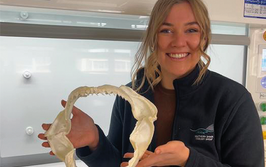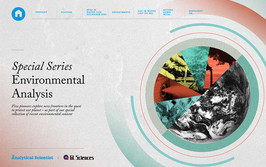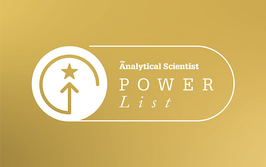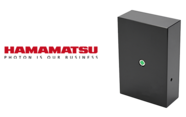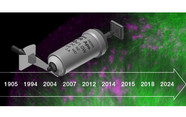Hans-Gerd Janssen

Senior Scientist, Compositional Analysis, Unilever Science & Technology, Wageningen; Part-time Professor, Recognition-based Analytical Chemistry, Wageningen University; The Netherlands
A problem interdisciplinarians should tackle? Plastics are excellent packaging materials for foods, but they are a disaster for the planet. For this reason, the food industry is trying to swap to paper packaging, but the barrier properties are much worse. As a result, we need to make changes to the product itself to ensure food safety and quality. We’ve already developed analytical tools to assist in rapidly assessing the influence of changes in the product as a result of the packaging material. This work required efforts from packaging experts, food safety specialists, and food chemistry scientists. Without the collaboration from multiple disciplines, this project would have been impossible.
The secret to a successful interdisciplinary collaboration? Basic understanding of what other techniques can do while sharing the needs and abilities of your technique. More than anything else, the appreciation for other people in your group and their methods is crucial to achieving the desired outcome.
Fostering interdisciplinary working… Help people understand that working with other disciplines doesn’t mean you’re failing with your own technique. Of course, we should always strive to improve our methods and the reach of their capabilities, but we should not see collaborative work as a negative. New insights and progress occur when different techniques meet.
The decade’s most important development? The reliability and stability of large data sets delivered by high resolution methods – such as LC-MS and GC-MS. Unfortunately, our ability to gain meaningful information from this data is lagging behind. We should now direct our attention to the weakest link and make an effort to ask ourselves what this is at regular intervals.
Biggest challenge facing the field? We can perform stable separations with huge data sets, but they aren’t necessarily reliable. We cannot confirm if each number in a table is correct or if every peak assignment is on point. Improving the accuracy of this data is one of our main challenges.
Missing from the toolbox? The analytical toolbox is currently full of highly specific tools with a very narrow application field. We’re missing a more generic tool with a broad coverage of analytical problems – a method that allows us to manage incoming questions rapidly without having to make changes (for example, change chromatographic columns, install another MS ion source, or re-optimise settings).
Controversial opinion? I find it too strong to say that the hardware for chromatography and mass spec is ready. There is always room for improvement, so it will never be completely ready. Other areas require more development, however – data processing being one of them.
